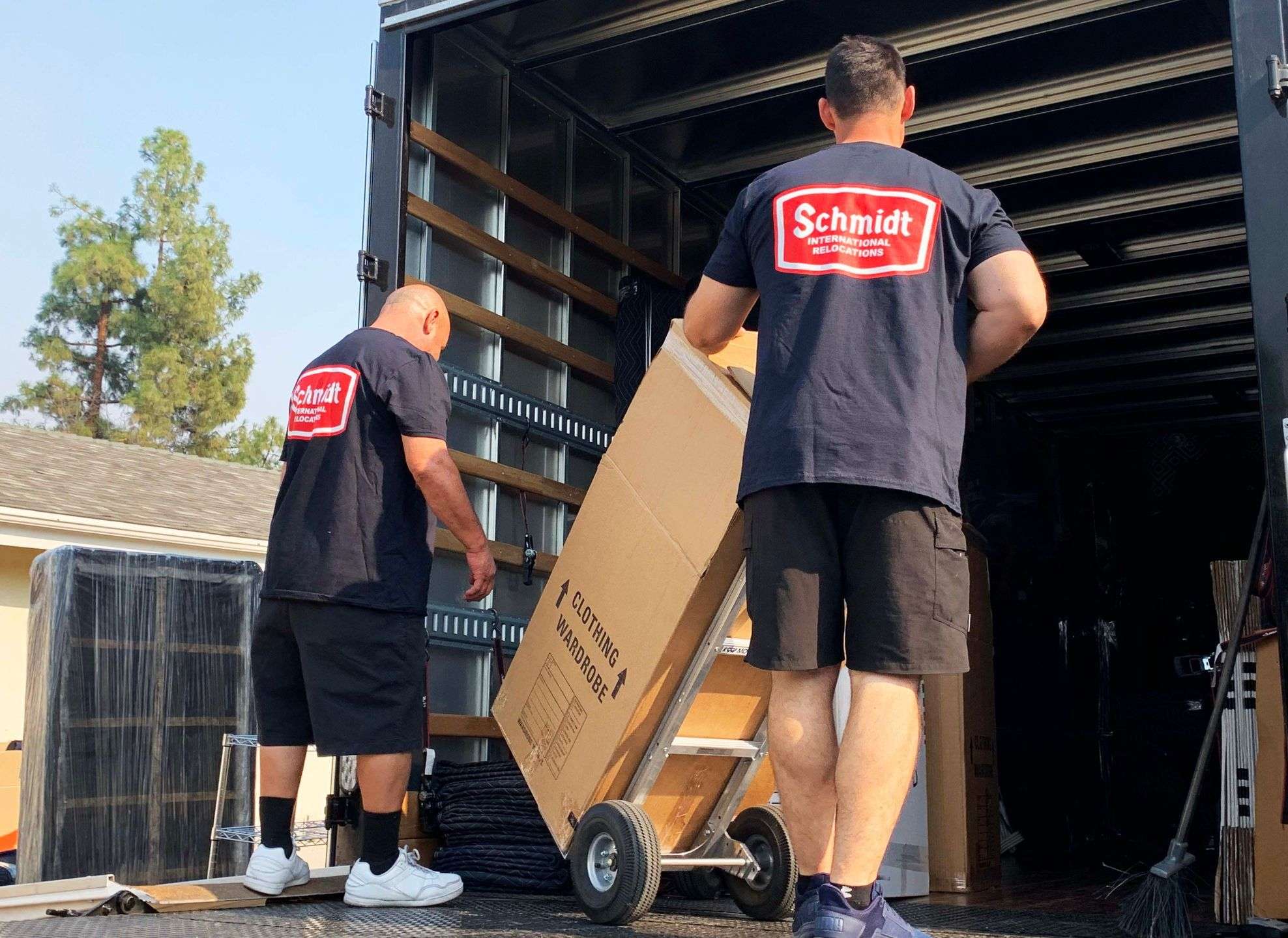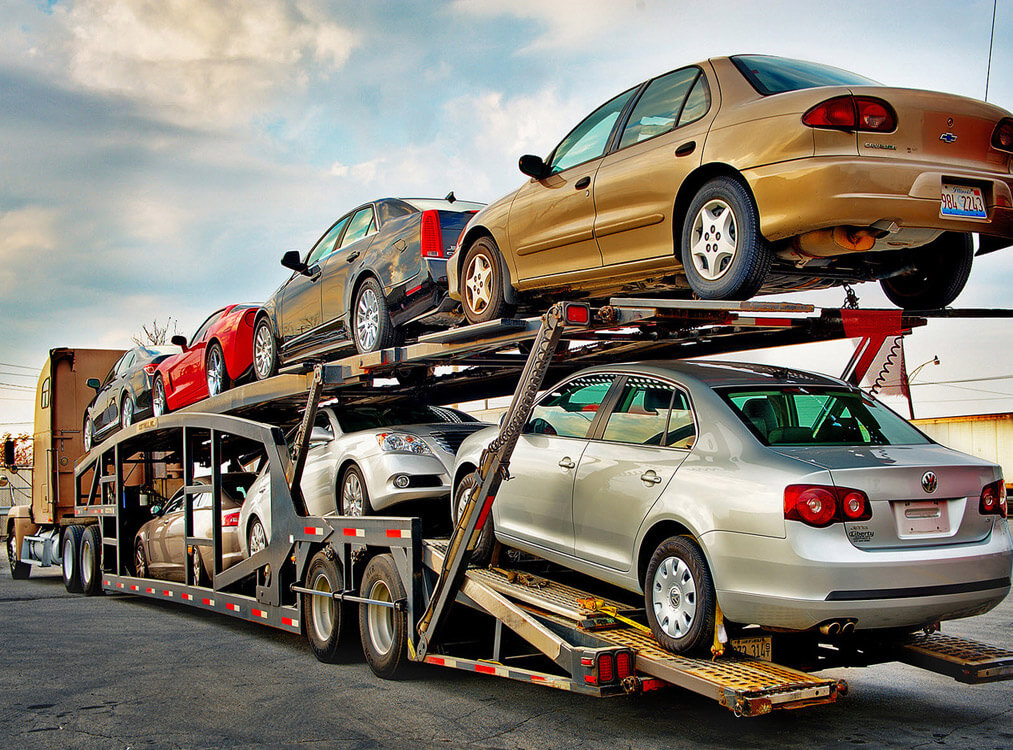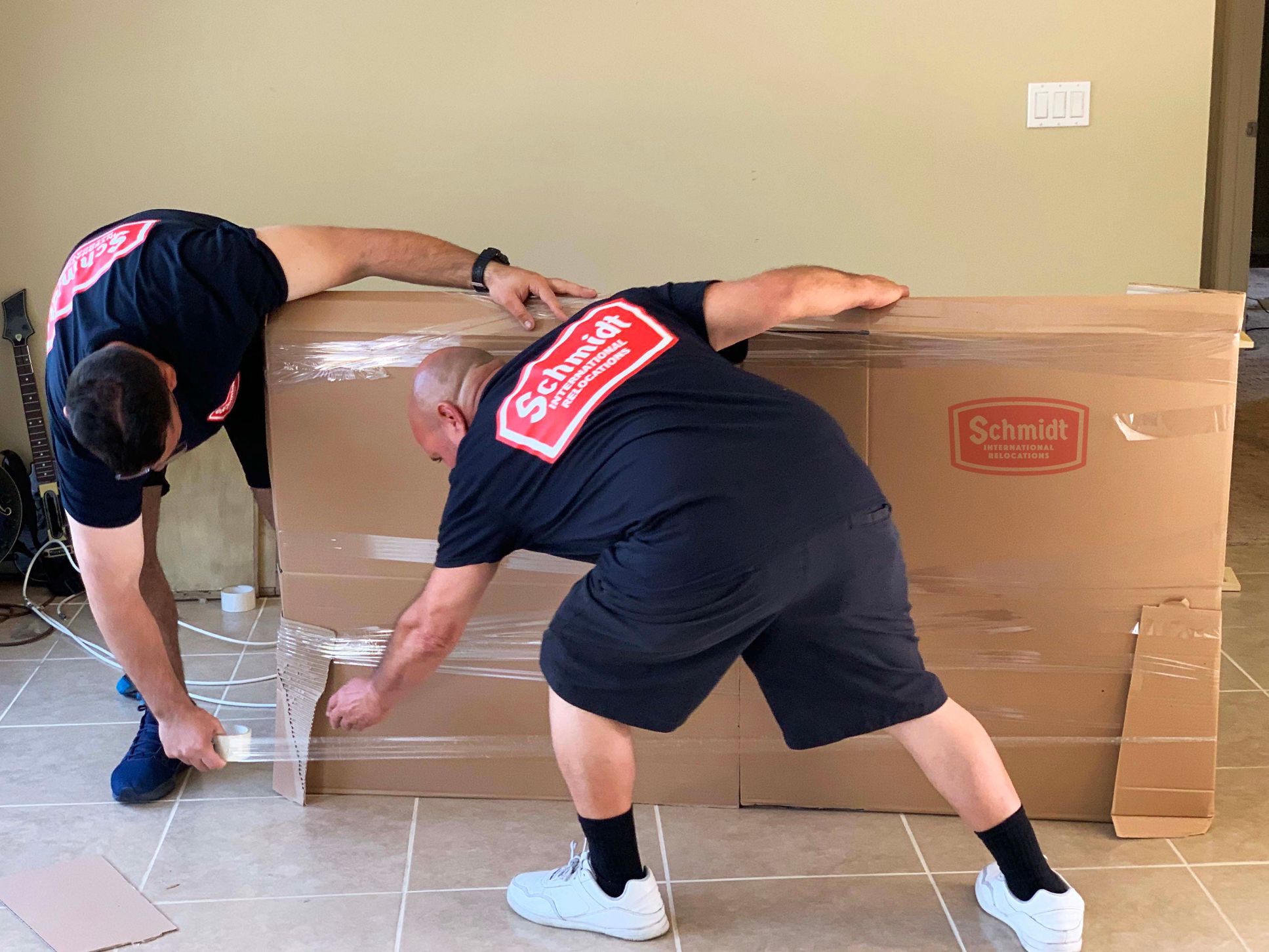

Relocating overseas is a huge life milestone, one that requires more than just a suitcase and a new set of keys. So, what do I need to move out and be worry-free, you ask? It’s all about figuring out what you actually need to take and how to get organized and prepare for the logistics ahead. Let’s break down everything that will help turn your relocation into a successful and exciting journey.
What Do I Need to Move Out of the Country?
When planning to live overseas, you need a thoughtful approach to your relocation to ensure everything goes smoothly. It starts with establishing financial stability and organizing your essential items, from furniture and kitchenware to important documents. Decluttering helps lighten the load and simplify packing, while hiring professional movers can ease the stress of handling logistics. Deciding between shipping and air freight for your belongings is also a must, and packing a “first-day” bag ensures you’re prepared for your initial days abroad.
What Do I Need to Move out of My Parents’ House?
If you plan to relocate from your parents’ home, know that relocating for the first time is a major life event. It’s exciting, liberating, and maybe even a little intimidating. It’s the first real step toward independence, where you’ll be managing your own space, finances, and responsibilities. While the thought of having complete freedom is thrilling, there are a few key things to prepare before relocating abroad alone, such as:
- Financial stability – make sure you have a steady income, a relocation budget, and enough savings for rent, utilities, and other essentials like groceries and insurance.
- Essentials – gather basic furniture (like a bed, table, and chairs), kitchen items (pots, pans, utensils), and personal items like bedding, towels, and toiletries.
- Important documents – Have all your important documents in one place.
- Independence – be ready to handle responsibilities like cooking, cleaning, and managing your time.

Planning Ahead for International Relocation – How to Avoid Stress
Moving internationally can feel like a giant puzzle – one with many pieces that need to fit just right. But the good news is, with proper planning, that overwhelming feeling can turn into excitement for your new adventure. The key to reducing relocation stress is all in how you prepare.
To avoid last-minute panic, start your planning early, and by early, we mean months in advance. Create a timeline that breaks your relocation into manageable pieces. Start with the big tasks first, like securing your visa, booking flights, and finding an international moving company. Then, work your way down to packing, saying your goodbyes, and even learning a few phrases in the local language if needed.
International Movers or DIY Relocation? How to Decide?
Hiring movers takes the heavy lifting off your shoulders. A reliable overseas moving company, such as Schmidt International Relocations, has the experience and resources to handle all the logistics of a cross-border relocation. Moreover, they’ll be able to provide you with specialized services such as overseas vehicle shipping or, for example, professional packing services – and make your move much easier. Sure, it might come with a higher price tag, but in exchange, you’ll save yourself from the stress of coordinating every little detail.
On the flip side, if you’re someone who likes to be hands-on or wants to save some cash, the DIY route could be appealing. But keep in mind, DIY when moving abroad is a whole new ballgame. You’ll need to handle shipping and customs forms and possibly navigate the complex rules and laws of your new country. It’s not impossible, but it does require a lot of research, patience, time, and energy. After all, that is why many people decide to get professional assistance.
What Do I Need to Pay For When I Move Out?
Understanding financial obligations upfront allows you to plan better, avoid overspending, and ensure that you have the necessary funds for setting up your new life abroad. By being aware of all financial aspects, you can also avoid unnecessary stress.
There are several key expenses to consider when you plan on living in another country. First, you’ll need to budget for international movers or shipping costs. Customs fees, taxes, and import duties may apply, depending on what you’re bringing into your new country. Additionally, there are costs for visa applications, legal documents, as well as the travel itself.
Don’t forget essential setup costs like your first month’s rent, security deposit, and utilities for your new home. Lastly, consider unexpected costs like temporary housing, storage, or last-minute purchases, which can quickly add up during an international relocation.

Pre-Packing Duties You Must Go Through
The pre-packing phase is all about getting organized, and the first part of this phase should be decluttering. Decluttering isn’t just about making packing easier – it can also make your international relocation cheaper. Smaller relocation inventory means a lighter load, which often translates to lower costs. It is a truly necessary task, especially if you’re already relocating on a low budget.
Deciding what to pack before relocating abroad is an opportunity to hit the reset button on your life. Think of it as a fresh start, free from the clutter that tends to accumulate over the years. Plus, fewer things mean less to unpack and organize when you finally move across the world.
To declutter the right way, start by breaking the process down room by room and carefully decide what to keep and what to get rid of. Be honest with yourself as you sort through your belongings. If something doesn’t have a clear purpose or sentimental value, it might be time to let it go. As for items you decide not to bring, consider donating them to Goodwill, selling, gifting, or recycling.
Packing for Long-Haul Moves – Shipping vs. Air Freight
Once you’ve narrowed down what’s worth taking, it’s time to think about how to get everything to your new destination. The two main options for international moves are shipping by sea or using air freight – each with its own advantages and considerations.
International moving by sea is the more common method for large, heavy items. If you’re relocating furniture, appliances, or a lot of boxes, sea freight is typically more affordable, though slower. You’ll need to plan well in advance since shipping can take several weeks, depending on where you’re going.
On the other hand, international moving by air is the speedier option. If you’re in a rush to get settled or only moving a small amount of high-value items, air freight may be an option for you. However, keep in mind that, although faster, it can be significantly more expensive.
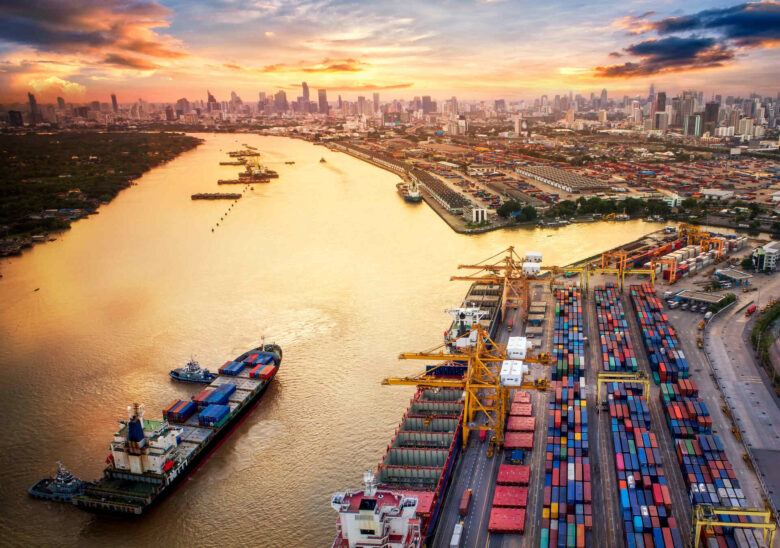
Room-By-Room Packing Guide
Each space in your home comes with its own set of challenges, especially when considering international shipping and customs. By approaching your packing in sections, you can stay organized and ensure you move safely and efficiently. Here’s what you need to do – and how to do it:
Packing Kitchen Appliances and Fragile Items
The kitchen is often the trickiest room to pack because of all the fragile and oddly shaped items. Start by wrapping dishes, glassware, and ceramics with plenty of padding – bubble wrap, packing paper, or even towels can offer great protection. For appliances like blenders, mixers, or toasters, remove any detachable parts, wrap cords securely, and pack them in their original boxes if possible. Don’t forget to check voltage compatibility in your new country before deciding what appliances to take!
Clothing for Different Climates
Packing your bedroom involves more than just packing clothes into suitcases. First, consider the climate of your new home. Are you moving to a warm climate from a colder one, or vice versa? Pack accordingly and keep seasonal changes in mind. As for furniture pieces, make sure to disassemble and protect them accordingly, minding the material they are made of.
Living Room Logistics
The living room can be a challenge due to the mix of bulky furniture and delicate electronics. For packing electronics like TVs, game consoles, and audio systems, use original packaging if you have it, or invest in specialty boxes designed to protect screens and sensitive components. Label all cords and pack them together with their corresponding devices to avoid confusion later. For furniture, disassemble anything that can be taken apart to save space and protect it during transport. Wrap delicate pieces in moving blankets or bubble wrap.
Essentials You Must Not Forget
While everything else can be tossed into a box to be unpacked later, there are a few things you simply can’t afford to forget when moving overseas. Birth certificates, passports, medical records, and all those other documents needed to travel abroad are not the kinds of things you want to go missing in a sea of bubble wrap. Gather them all in a single folder or envelope and keep them close at all times. While you’re at it, throw your valuables – jewelry, heirlooms, and anything irreplaceable – into the designated bag. You’ll feel better knowing they’re with you and not jostling around in a relocation truck.
Last-Minute Must-Haves
There are always those relocation essentials completely overlooked until the last minute – phone chargers, toilet paper, basic toiletries, and, yes, a change of clothes. Trust us, by the time you’re done relocating, you won’t want to dig through boxes just to find a clean shirt or your toothbrush. Pack a small bag with these last-minute must-haves so they’re readily accessible when you need them, whether in your home or during a trip.

Tips for Making International Moving Day Go Smoothly
Relocation day is always a bit hectic, but when you’re relocating internationally, the stakes are higher and the logistics more complex. That’s why it’s best to create a detailed moving-day checklist that outlines everything you need to do. It should list everything from ensuring your belongings are properly packed and ready for transport to final walkthroughs.
Additionally, if you’ve hired international movers, make sure to prepare your home for their arrival. Also, make sure to stay in touch with them throughout the day. Confirm arrival times and review your inventory list. This will help prevent confusion and delays.
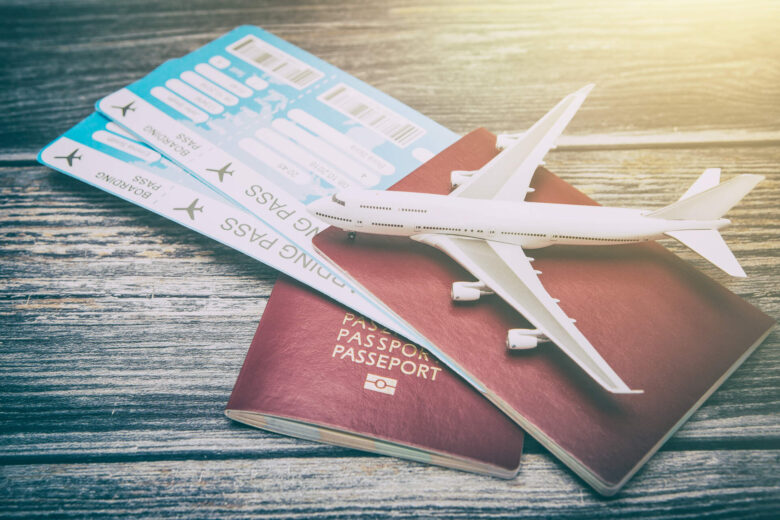
Schmidt International Relocations – The Key to Successful International Move
What do you really need to relocate internationally? You need a team that understands the complexities of overseas shipping, customs regulations, and how to ensure your belongings arrive safely and on time. Schmidt International Relocations takes the stress out of your hands, offering tailored solutions for your relocation, whether by sea or air freight.
With us, you can focus on settling into your new home rather than worrying about logistics or the safety of your belongings. Contact us today, book the relocation date, and get the peace of mind that comes with working with the best in the business.

